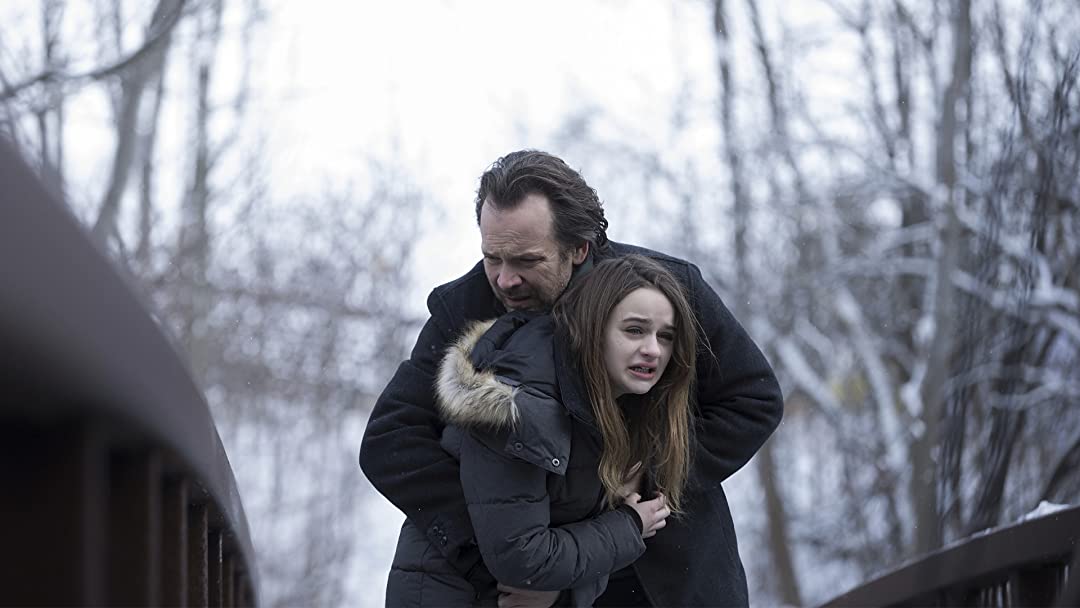What to Watch Verdict
'The Lie' stumbles out the gate and just continues misstepping, as its narrative becomes almost impossible to connect with the deeper its mishandled deception becomes.
Pros
- +
🥞 It tries something!
Cons
- -
🥞 Tonally, little makes sense.
- -
🥞 Narratively it doesn't do much better.
- -
🥞 Doesn't tackle the themes its trying to in any meaningful way.
The Lie is quite the epic on-screen disaster. It’s maddeningly psychotic but delivered with such a tonally ambivalent sternness, and also unquestionably inept when exposing a narrative that requires the utmost precision in reveals. Veena Sud’s remake of the German film Wir Monsters brings up numerous hot-button topics but doesn’t expand past glancing blows in any instance. It’s like a Sundance midnighter and a Lifetime thriller made a cinematic baby that’s all thumbs, growing more absurd by the sequence. It's a film that attempts to provide commentary on the trauma of divorce, horrors of racial profiling, dangers of self-harm, and thickness of hereditary bonds that horrendously underserves each theme worse than the last.
Joey King plays Kayla, who just murdered a ballet school friend after throwing her from a bridge. Kayla’s father, musician Jay (Peter Sarsgaard), decides not to report the criminal offense. Jay immediately drives Kayla to his ex-wife Rebecca (Mireille Enos), who falls in line with Jay’s crisis handling. Together, Jay and Rebecca begin formulating an alibi to keep their daughter out of prison. The deceased teen’s father, the recently divorced Sam Ifrani (Cas Anvar), begins poking around, inquiring about his daughter’s disappearance. How do Jay and Rebecca react? By making it their mission to frame the Pakistani man for child abuse and possible murder. As any devoted, caring ex-spouses would do for their “spoiled, bratty” kin.
What unravels as ex-husband and wife blatantly lie to police, protect Kayla, and frame an immigrant is so very vexing from a storytelling perspective. “You don’t have children; you wouldn’t understand.” Fine, maybe, but the problem with The Lie is how rapidly and aggressively Kayla’s parents fall into their web of dumbfounding falsities. The parents go so far as to say things like, “accidents happen, you’re a good person,” about the teenager who just sent another girl plummeting into icy waterfall runoff because she gets more attention from boys. Yes, we discover that Kayla is jealous of Brittany (Devery Jacobs), which constitutes death for “being a bitch.” The script’s shallowness shows well before these words are uttered, but makes for a proper exemplification of how willy-nilly contextual groundwork is laid.
The Lie makes ample space for romantic flare-ups as Jay and Rebecca rekindle their marital bliss while, say, wiping away bloody nose drips after Jay attempts to gaslight a panicked Sam. They share tender exchanges as wrongdoing accomplices, which are granted tenfold more focus than, say, a throwaway line about how Kayla started cutting herself soon after Jay bailed on his fatherly duties years back (never mentioned again). Complex emotions within characters morph as Rebecca goes from fearing her remorseless daughter who shows no conscious scars to perjury-adjacent stupidity, while hesitations vanish as Kayla’s heinous actions turn out to be what this broken family needs to mend. Faux sweetness that never, EVER works beyond being a destructive distraction from the growing gobsmackery on-hand.
As weaponized fibs spread, and words endanger even more individuals, the film’s third-act works to undo what little resonance might exist in Sud’s messaging. The Lie is an absolute mess of motivations and intentions across all guilty parties. There’s a better movie in here about the fight-or-flight reaction in parental figures, also “mother bear” instincts that put family ahead of all else, but Sud’s finale undoes anything worth intrigue in King’s performance. A pre-college killer whose parents exploit their skin color for the sake of sticking together, smiling as mom and dad rediscover their attraction, being coddled and instructed to forget all about the little oopsie she committed. As “Whys” and “Hows” become apparent, as Sam is sacrificially offered to law enforcement, clarity only brings more frustration. I can’t reveal exactly why, but I can divulge it’s somehow both offensively predictable and astoundingly jaw-dropping without the wherewithal to comprehend how ninteyish ill-plotted minutes play as a whole.
At its lowest points, The Lie is emotional manipulation that doesn’t care enough to earn its gasps or cringes. We’re along for this bizarrely tone-deaf ride of jumbled and misguided values, which also majorly lacks thrills. Whenever Kayla flees from a frantic Sam, heartbreakingly just in search of answers, it’s content that’d barely pass on daytime television. Veena Sud opens a Pandora’s Box of issues but doesn't successfully fit them all into place or make them matter. The screenplay repurposes these heavy moments that should hit like sledgehammers as one-off stereotypes and cliches, which erases any condemnation value. In the most non-spoilery of terms, all I can say is sure, there’s a big swing taken here; it’s also the biggest of “what if” whiffs you’ll scratch your head throughout this year.
The latest updates, reviews and unmissable series to watch and more!
Matt Donato is a Rotten Tomatoes approved film critic who stays up too late typing words for What To Watch, IGN, Paste, Bloody Disgusting, Fangoria and countless other publications. He is a member of Critics Choice and co-hosts a weekly livestream with Perri Nemiroff called the Merri Hour. You probably shouldn't feed him after midnight, just to be safe.


